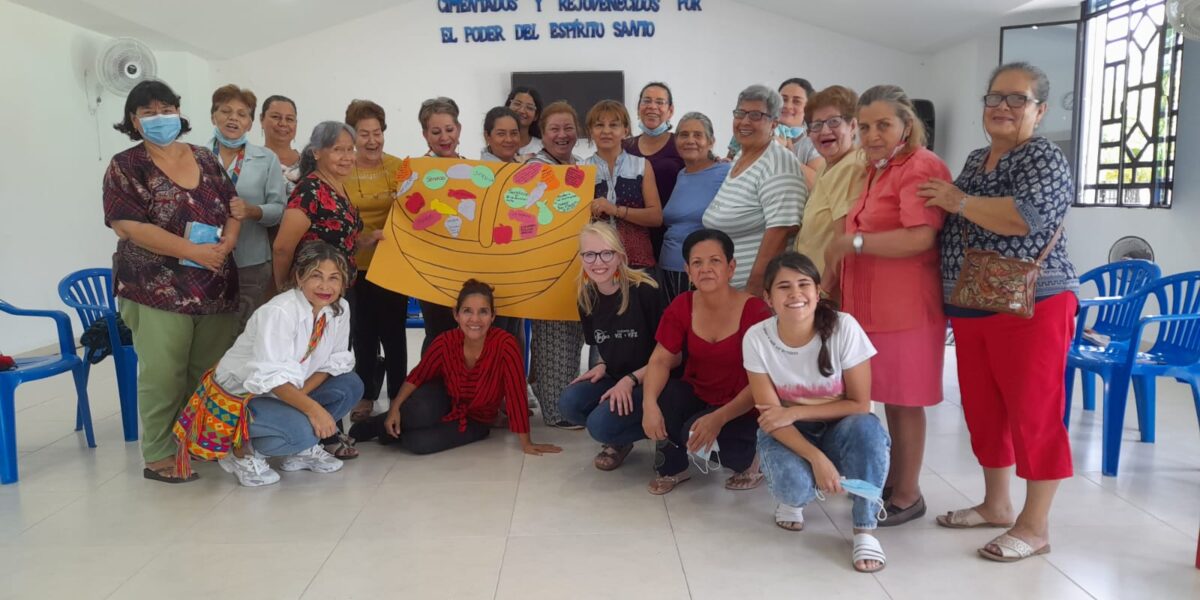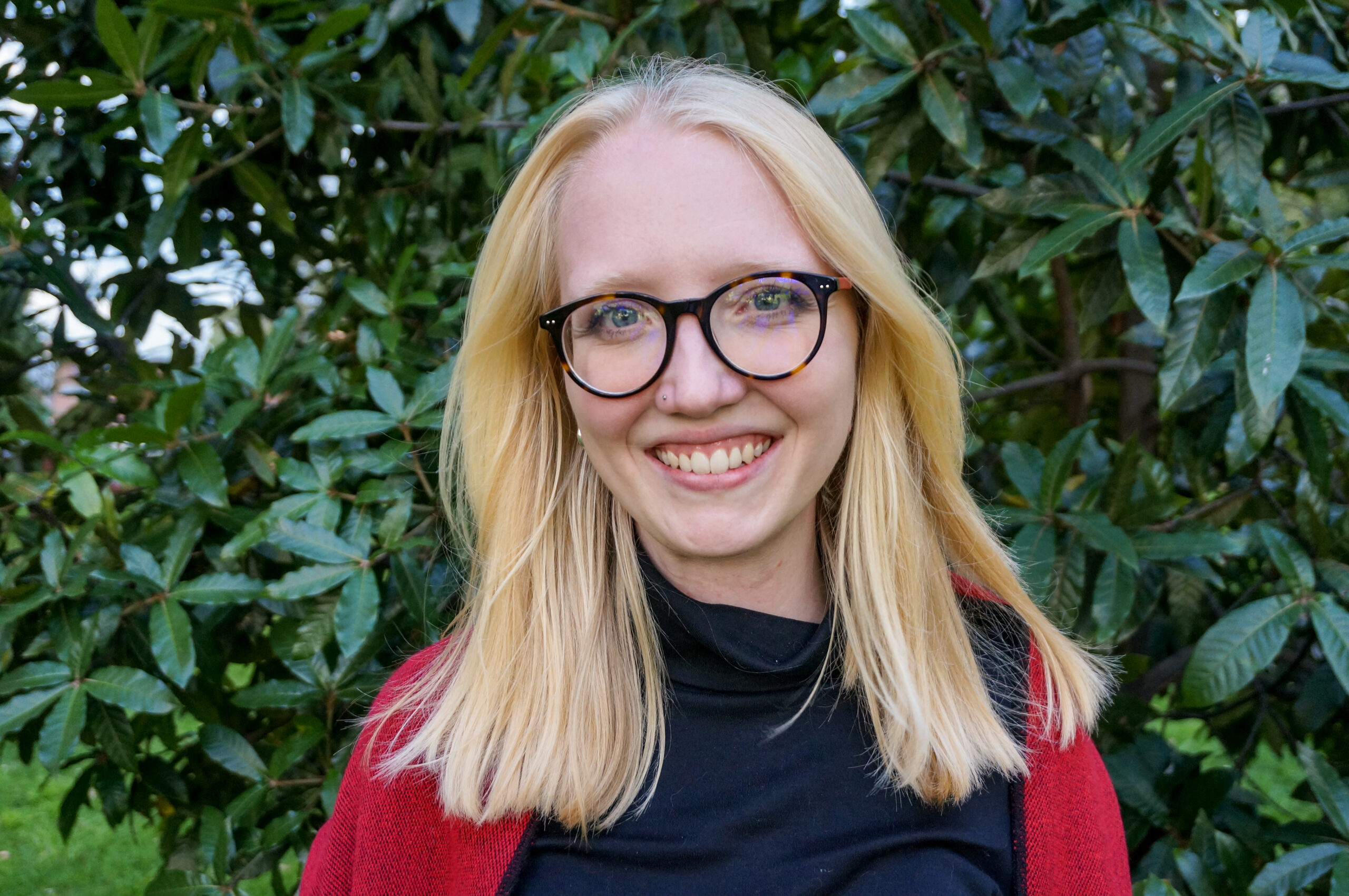November is mission
month! How is your church celebrating? Join in what God is doing around the
world by highlighting a ministry during a Sunday service in November. Mennonite
Mission Network is excited to provide stories, moment-in-mission videos and worship
materials to help your congregation celebrate and learn more about meeting
Jesus in sacred spaces. Click
here to get all the tools to make it happen!
This
week, we’re highlighting how the "Women and Peace"
project creates sacred space for peacebuilders of faith.
Justapaz is the justice and peacebuilding organization of Iglesia Cristiana Menonita de Colombia (IMCOL, Colombian Mennonite Church). Rebekah York, a worker with Mennonite Mission Network in Colombia, connects with Justapaz, though the Mujer y Paz (Women and Peace) project, which strengthens the role of women in peacebuilding endeavors.
Over the past couple of months, I have had the privilege to travel to various cities in Colombia, holding spaces for women to read and learn together through the biblical character of Abigail from 1 Samuel 25. These gatherings have been sacred. No matter where we find ourselves, the encounter begins something like this: We start by sharing together what we know about the context of 1 Samuel and what part this book plays in the overarching narrative of the people of Israel.
1 Samuel 25 starts with Samuel’s death, and David retreating into the wilderness to hide from King Saul. While there, David asks a wealthy local rancher, Nabal, to show some hospitality towards him and his men. David had protected Nabal’s shepherds — and sheep herds — earlier in the season, and was looking for the favor to be returned. Nabal, described as "surly and mean in his dealings" (v. 3 NIV), refused. For that, David planned to destroy him and everything he had.
Abigail, the wife of Nabal, heard of David’s plan through one of their servants. Without telling her husband, she rounded up bread, wine, sheep, figs and more; loaded it all up on donkeys; and met David and his men, who were already on their way to destroy Nabal. She mediated on behalf of her husband, giving all she had brought with her as a gift to David. She pleaded with him to spare her husband and their family. David, moved by her request, accepted. Abigail’s mediation averted a bloodbath.
During the next part of the workshop, we talk about what we see happening in the story, who the characters are and how they interact with one another. We, then, discuss the character of Abigail: Who was she? What else do we know about her? What do her words, albeit few, and her actions — standing in stark contrast to the men’s actions in the story — have to teach us today? What are her gifts and abilities, as evidenced in this story?
Based on our initial conversations and observations, we begin to breathe life into the story, giving voice to a woman who only has one chapter dedicated to her in the entire Bible.
At the local Mennonite church in the small town named Girardot (Colombia), our workshop group sat together in a tight circle, fans blowing around the stale, humid air. Here, we talked about Abigail and her gifts. Without missing a beat, one woman interrupted the conversation.
"Wait. Just a minute. I have a question," she said. "We have been talking about how amazing Abigail is and all these gifts we see in her. And my sister here," she continued, pointing to the woman to her left, "just claimed that she, too, is Abigail. So, my question is, if women are so amazing — if we are capable of mediating, working for peace and transforming violence — then why are they killing us? Why is the number of murdered women on the rise here, in Colombia? Why are we being silenced instead of being given more leadership roles?"
Everyone fell silent. What this sister was saying is true. Being a female social leader is one of the riskiest positions a woman can have in Colombia, as women leaders are meticulously sought out and silenced. After a few minutes, another sister spoke up.
"It’s because we live in a patriarchal society," she said with poised confidence, "And we are going to continue to be met with violence against us — all different types —because patriarchy is a reality. But that’s why these spaces are important, because it starts with us. It starts with us forming our children, both girls and boys, in ways that don’t allow these cycles to continue. It starts with us knowing our rights and our gifts as women, and especially by recognizing our dignity as people made in the image of God."
 Workshop attendees discuss the biblical story of Abigail at the Mennonite church in Giradot, Colombia. Each workshop session ends with a closing ritual of reflection, as well as an invitation for each woman to name their gifts and offer them for the transformation of their community, church and society. Photo by Rosembert Ipuz Quintero.
Workshop attendees discuss the biblical story of Abigail at the Mennonite church in Giradot, Colombia. Each workshop session ends with a closing ritual of reflection, as well as an invitation for each woman to name their gifts and offer them for the transformation of their community, church and society. Photo by Rosembert Ipuz Quintero.
Sometimes the conversations in these workshops play out like the one above. Other times, the workshops are a time of grief and lament, when the women share stories of violent attacks or massacres that their communities experienced, in which, even amid the women’s staunch resistance, lives were lost. While holding space for these stories, the women who attend and facilitate these workshops leave the sacred community, created over a scant 2-3 hours, with a renewed understanding of context, place, memory, history and our gifts as women peacebuilders of faith.








